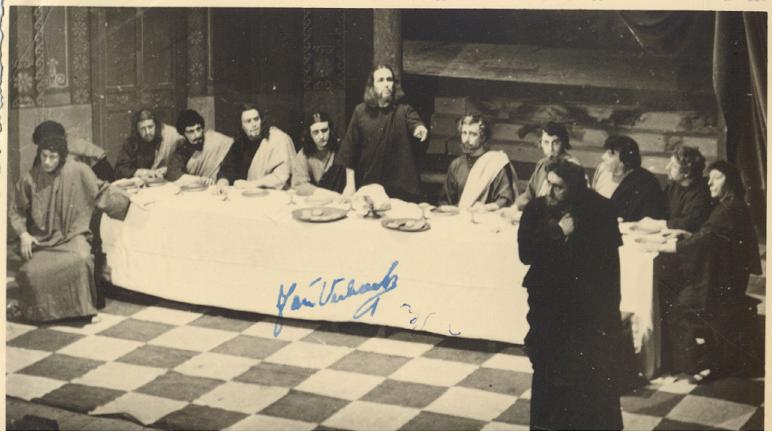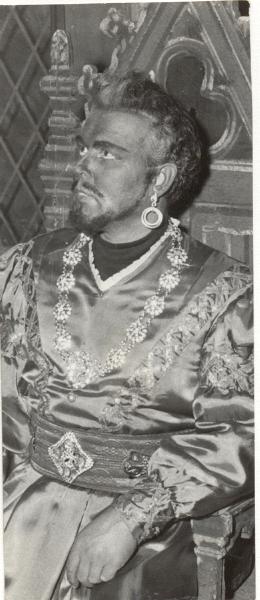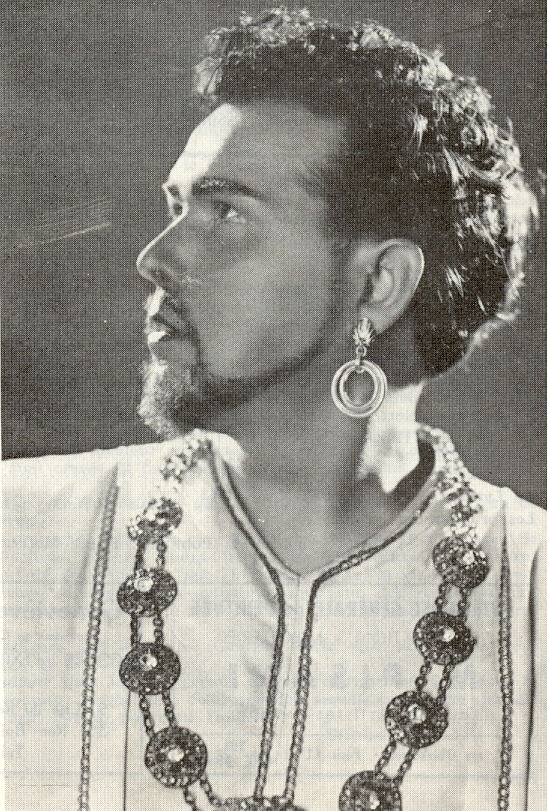A very exhaustive portrait of Verbeeck, written by Claude-Pascal Perna, can be found on the extraordinary website
Musica et Memoria; I'm limiting myself to a summary of that long article.
Verbeeck was born into a well-off family of diamond merchants, and he, too, became a diamond cutter. But he loved
singing, and took voice lessons from a young age, in Antwerp and then in Ghent. He sang his first public concerts at the
beginning of WWII, before being deported by the Nazis to perform forced labor for them in Auschwitz – not at the
extermination camp, though, just in the town of Auschwitz. The work was extremely hard, and he would remain prone to
bronchitis and pulmonary inflammation for all his life.
Back to Antwerp after the war, he was also back to diamond cutting, but in 1947, he changed profession, and made his debut
at the Antwerp opera in June, as Alfredo. In 1952, Vina Bovy hired
him for the Ghent opera, whose director she was at that time. Antwerp and Ghent would always be at the center of his
activity; he also sang a lot in Liège and Verviers, but never at La Monnaie in Brussels. He actually had a contract
with La Monnaie for the 1959/60 season, but it was cancelled by La Monnaie's new manager, who did not feel committed to
agreements made by his predecessor.
Abroad, Verbeeck sang very much in France (Bordeaux, Toulouse, Toulon, Lille, Montpellier, Mulhouse, St-Étienne,
Dijon...), and also in Algeria, Germany, Spain and Hungary. He quit the stage in 1976,
but continued to appear in occasional recitals until he was 90 years old! His voice was incredibly robust and healthy; he was able to
sing an afternoon performance somewhere in France, and step in the same evening for a sick colleague in Belgium. He was in
high esteem as a very helpful colleague, and he could be as he typically knew not only his own role by heart, but also those
of the other characters. He had a photographic memory for music, and learned his roles accordingly quickly, in a matter of
few hours. He was even able to sing his roles in various languages at the same time, i. e. in Dutch in the Flemish part of
Belgium, in French in Wallonie or France, and in German or Italian, respectively, at the more internationally oriented
theaters. He had a reputation as a
breathtakingly intense interpreter, although he was no good stage actor; he did all the acting with vocal means only.
From his lyrical beginnings, he very quickly advanced to the dramatic repertory: Tannhäuser, Max, Paul in
Die tote Stadt (a favorite part of his), Grigorij, Loris, José Lohengrin, Luigi, Andrea Chénier, Otello,
Manrico, Canio, Calaf, Siegmund, Samson, Jean (Hérodiade), Florestan, Pedro, Dick Johnson, Sadko, Bánk
Bán (!!), Osaka, Stolzing, Vladimir Igorevich, Bacchus, Don Carlo, Raoul. But he was surprisingly versatile, and
also sang Gennaro (Lucrezia Borgia), Ferrando, Lyonel, Sou-Chong, Barinkay, Edgardo, Tamino, Faust, Hoffmann, Roméo;
plus he always sang the occasional comprimario part, as if he couldn't get enough of singing as much as possible:
Narraboth, Tybalt, Matteo, Camille de Rosillon. All in all, he sang about 80 roles.
Reference 1: Claude-Pascal Perna;
reference 2: Opera Nostalgia


